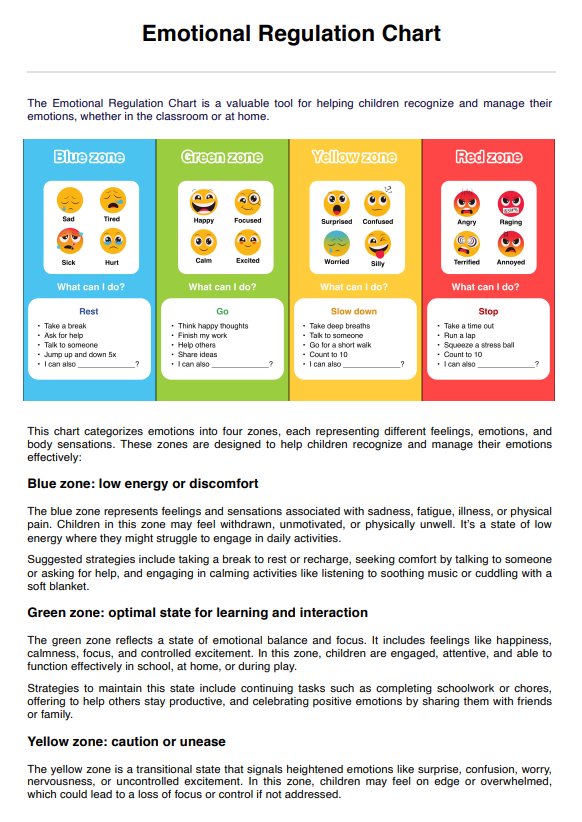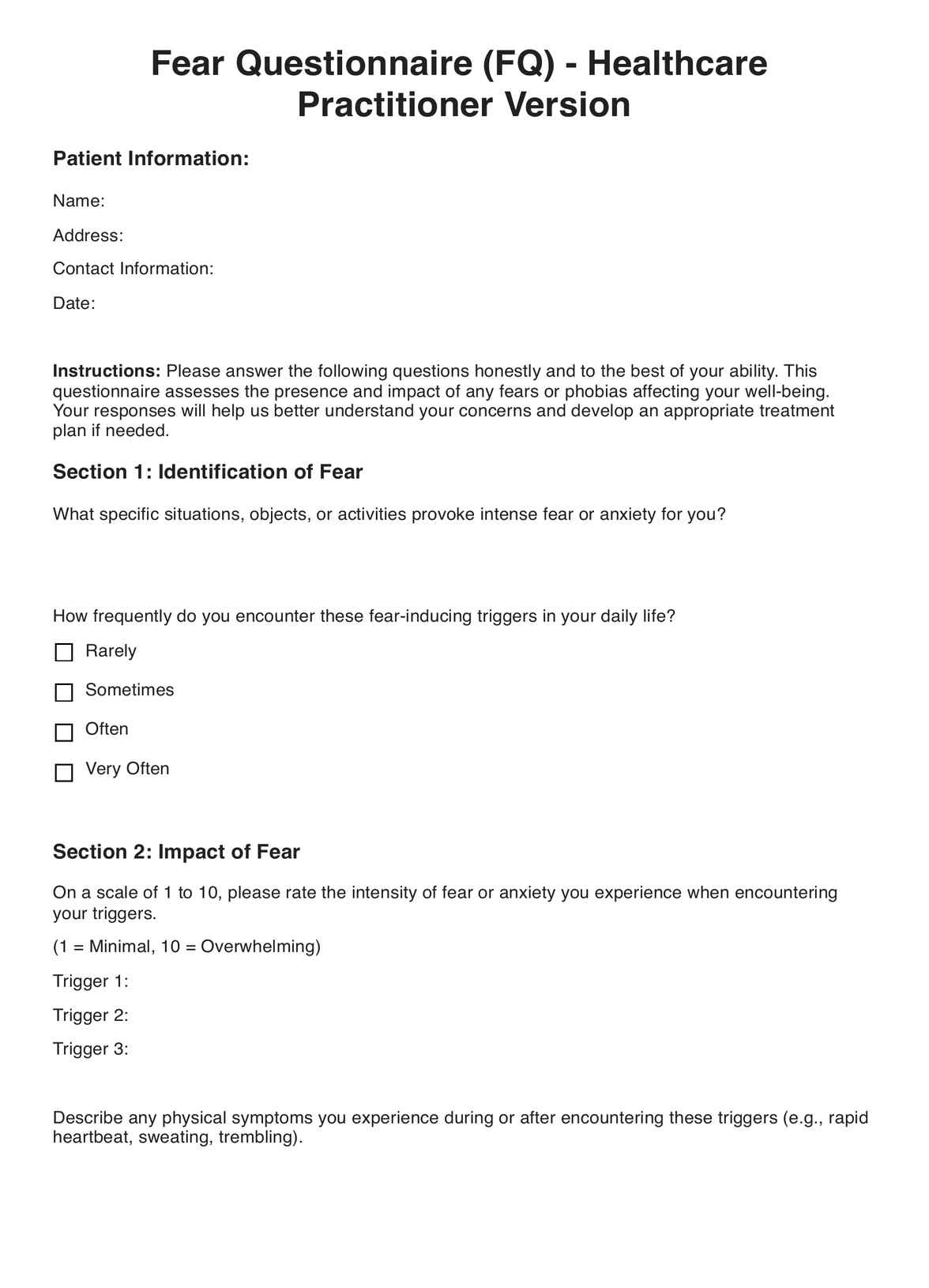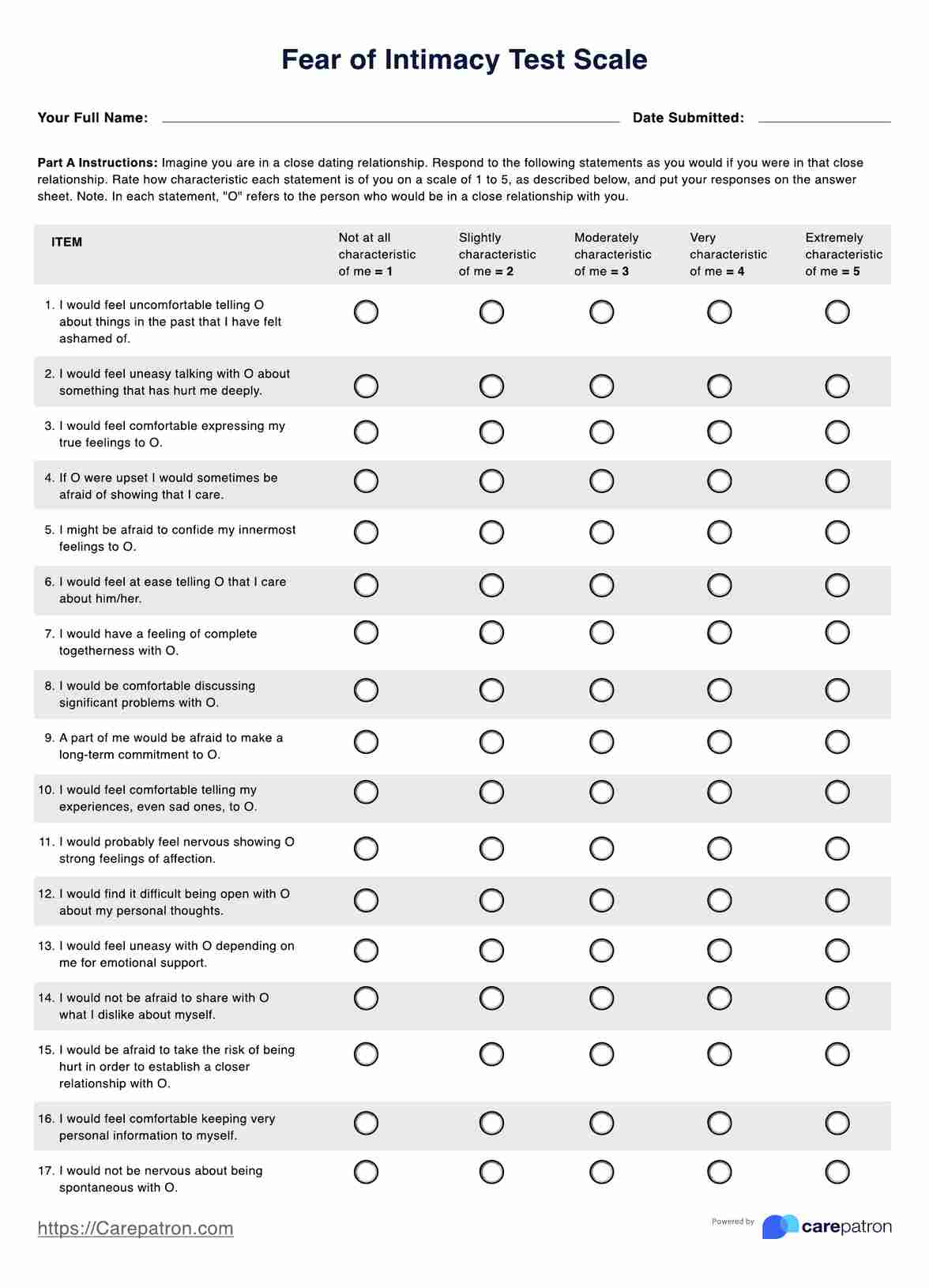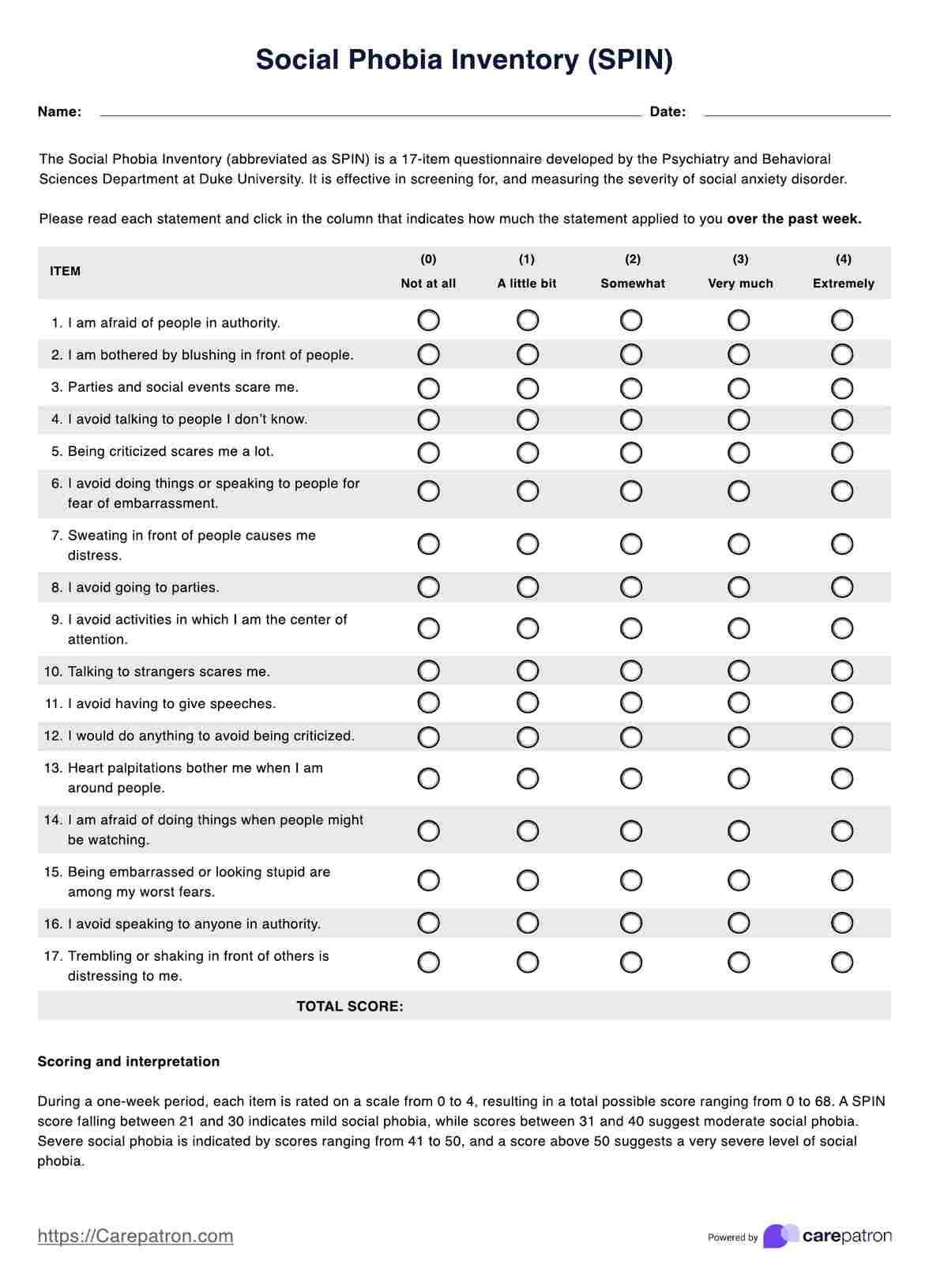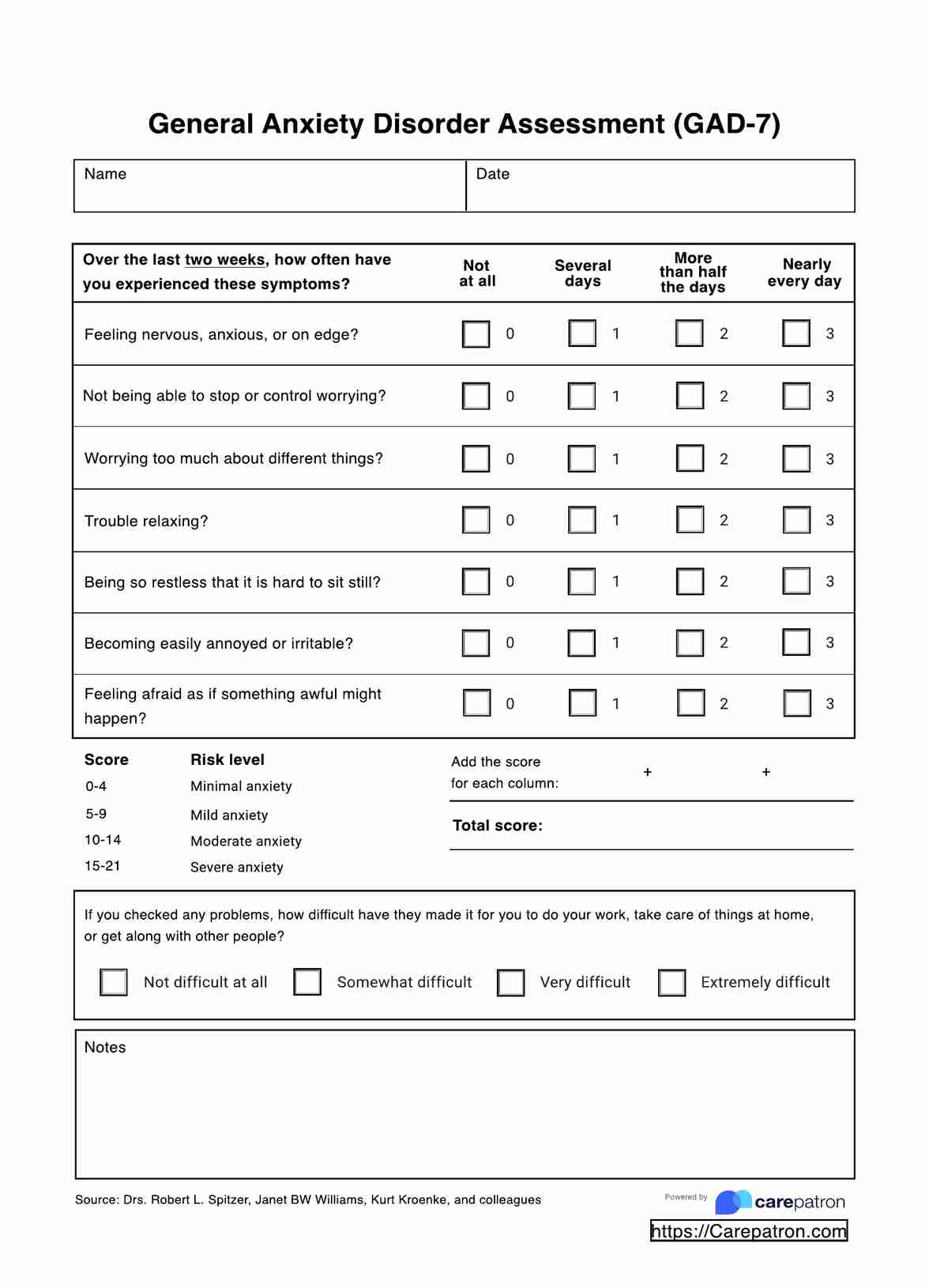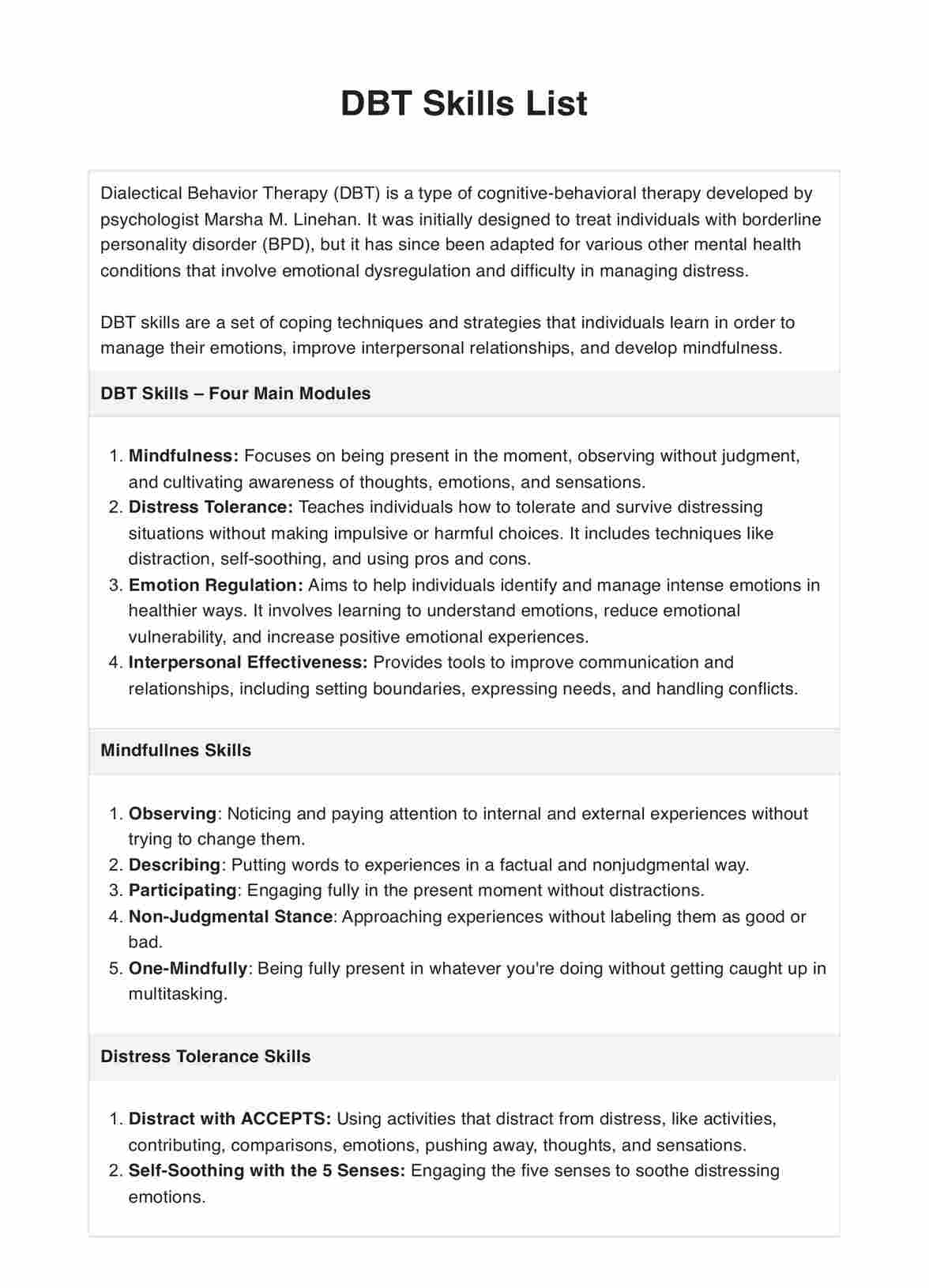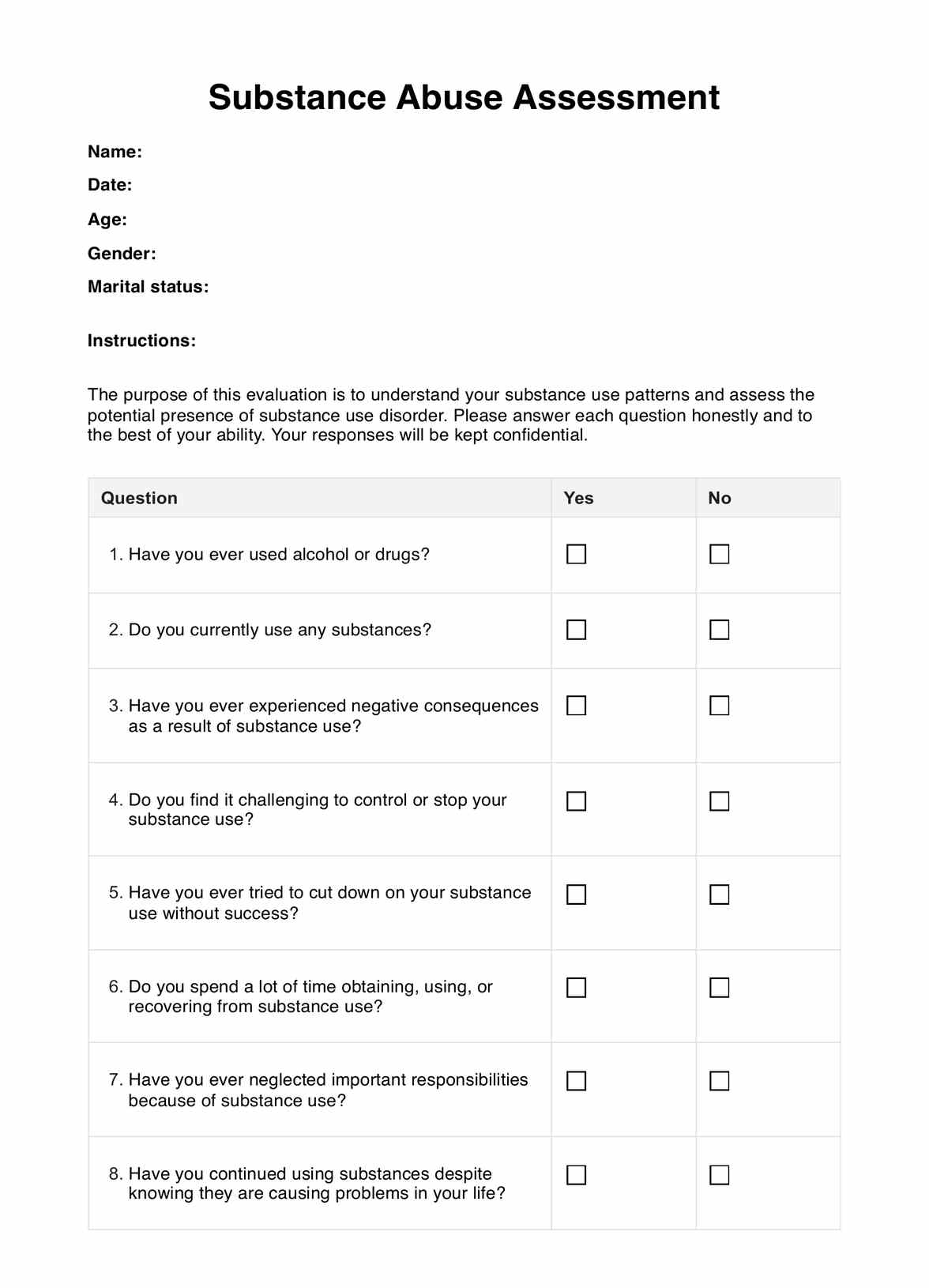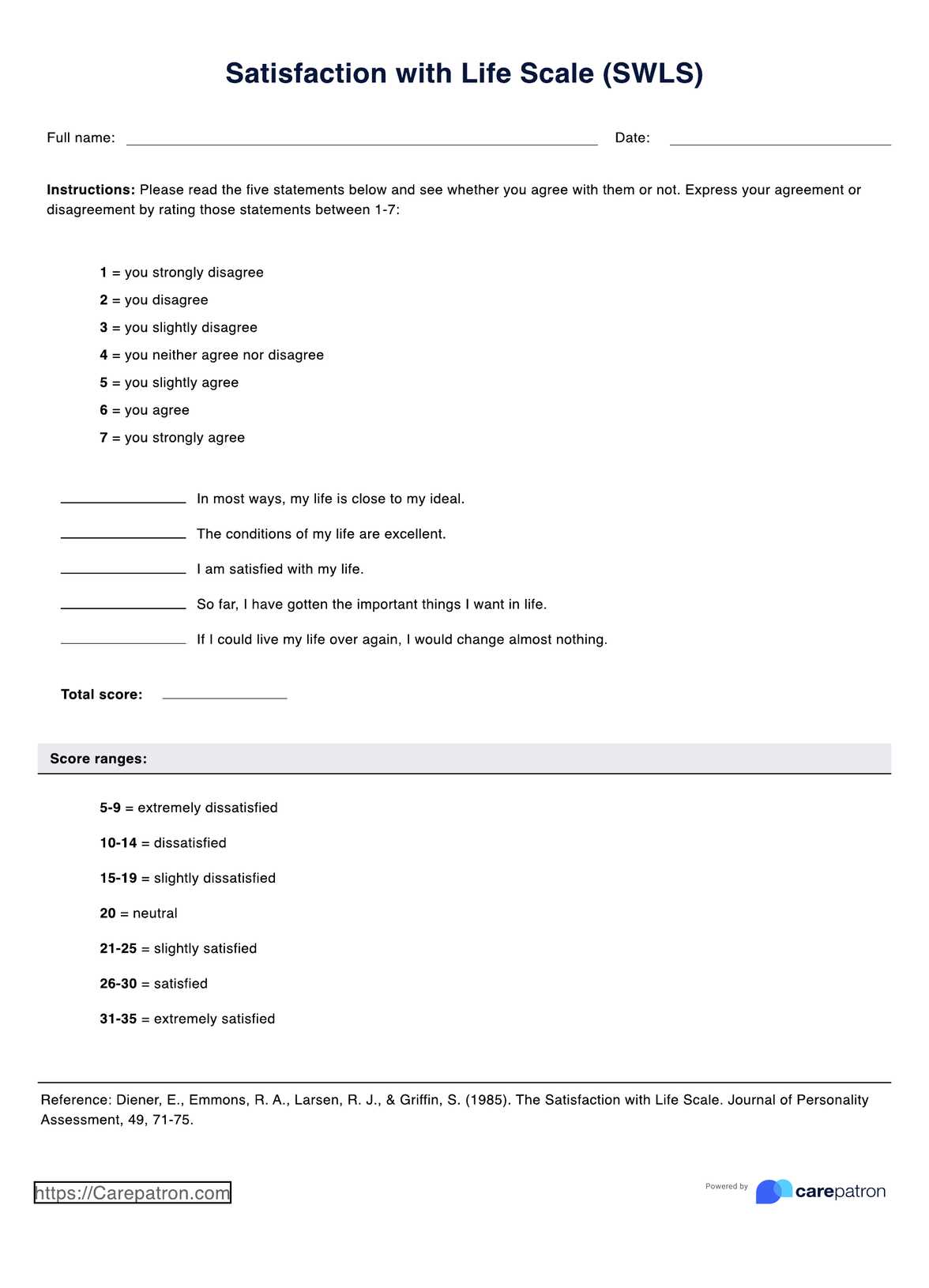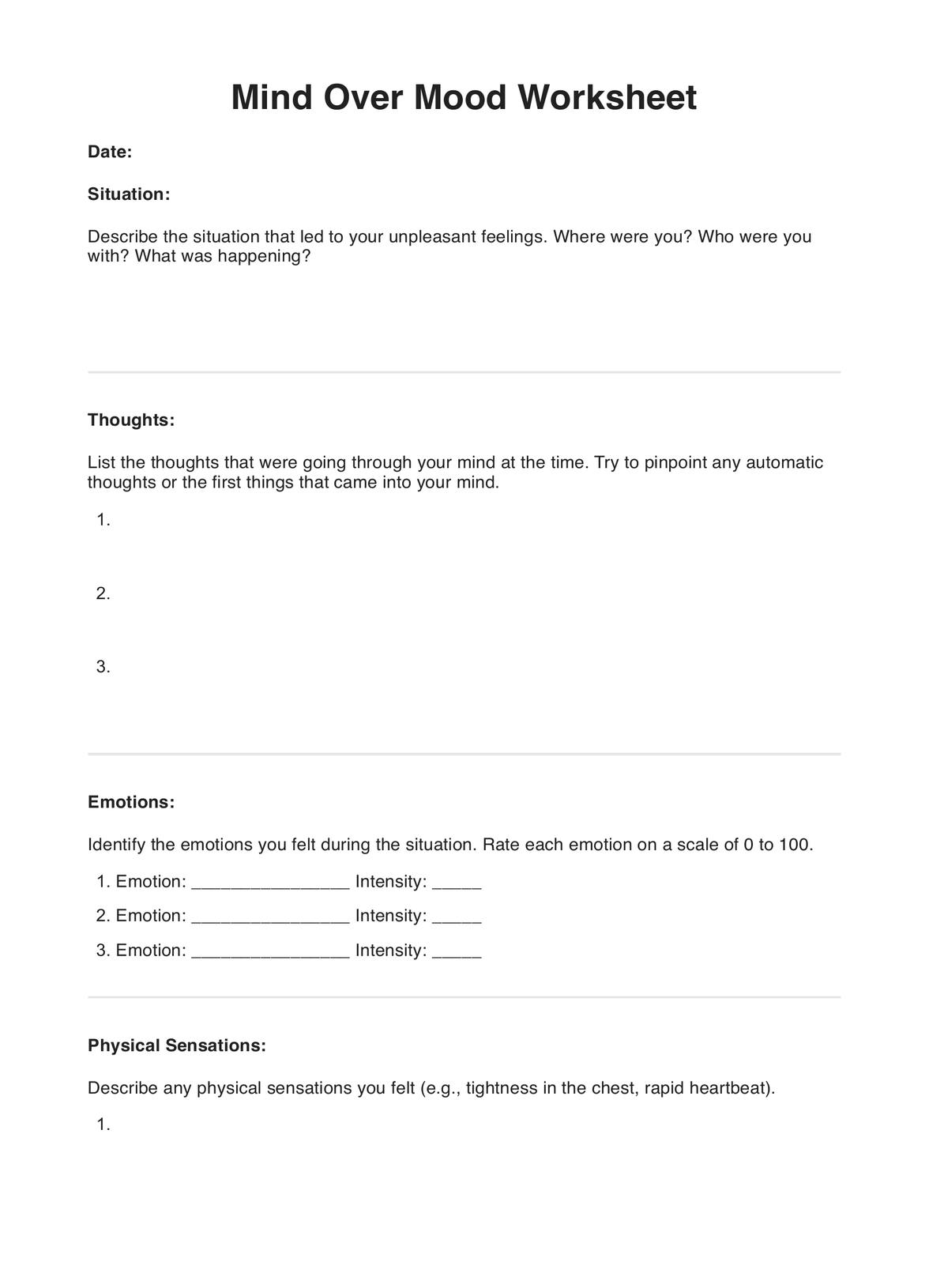DBT Therapy Worksheet
A printable DBT Therapy Worksheet that improves the client's skills of managing emotions, interpersonal interactions, and more.


What is a DBT Therapy Worksheet?
A DBT Therapy Worksheet is important in Dialectical Behavioral Therapy (DBT) sessions. It helps identify and address any issues that may be causing emotional distress. This type of therapy works on radical acceptance, change, and balance principles, assisting individuals to overcome post-traumatic stress disorder (PTSD). Dr. Marsha Linehan's work in behavioral research has been instrumental in developing and sharing treatment tools for DBT training, consultation, and treatment.
Activities such as journaling, mindfulness exercises, and problem-solving strategies encourage individuals to accept their current emotions while finding ways to make positive life changes. The DBT worksheet covers various topics such as personal values, problem-solving skills, emotion regulation strategies, interpersonal effectiveness skills, and self-care techniques. The goal is for the individual to become aware of their thoughts and feelings to manage them better, vital to distress tolerance.
Additionally, this form of therapy can help people learn emotional regulation skills when dealing with stressors in life. To complete one's DBT worksheet effectively, the individual must have a strong support system around them who will listen without judgment or criticism.
A therapist should also be available throughout the process so that progress occurs steadily instead of feeling overwhelmed by all the information presented within each activity section on the sheet itself. Furthermore, regular check-ins with a professional allow individuals to measure how far they have come since starting treatment, which could increase motivation toward further growth.
DBT Therapy Worksheet Template
DBT Therapy Worksheet Example
How to use this DBT Therapy Worksheet
This DBT Therapy Worksheet is designed to be intuitive to use. Just follow these simple steps to get started:
Step 1: Download the template
You can download the free PDF template onto your device or access it from the Carepatron community template library. Adobe Acrobat is the most compatible application for filling out this worksheet digitally.
Step 2: Choose the worksheet
The same file includes two different worksheets, each focused on developing a distinctive skillset of DBT therapy. You would choose one or both, depending on your client's specific circumstances.
Step 3: Provide guidance
The DBT Therapy Worksheet should be completed as part of the therapy, meaning the therapist should provide support and guidance throughout the process.
Step 4: Assign as homework
Once the client has completed the worksheet, don't just throw it away. These worksheets aim to develop a skill set that improves clients' mental health. After the worksheet, therapists should remind the clients to apply techniques and activities they went through on the worksheet in real-world scenarios if possible.
Who can use this printable DBT Therapy Worksheet (PDF)?
DBT modules and resources can be used by individuals engaging in Dialectical Behavior Therapy (DBT). Our DBT Therapy Worksheet focuses on DEARMAN and ACCEPTS skills and can be used to help individuals recognize the importance of self-care and emotional regulation. It is particularly helpful for clients with borderline personality disorder (BPD) and other related mental health conditions. Some examples of clinicians and therapists who use DBT are:
- Psychologists
- Psychiatrists
- Social workers
- Counselors
- Other mental health professionals
The DBT Therapy Worksheet provides a reliable framework for therapists to plan treatment, understand their client's needs, and measure progress, enhancing focus during therapy sessions. It also facilitates effective communication, helps identify and address problematic behaviors, and nurtures a DBT skill. You may also consider using other DBT worksheets, such as the Identifying Relationships That Reflect Your Values DBT Worksheet and Seeing Someone Else's Perspective DBT Worksheet.
Benefits of free DBT worksheet
DBT resources like these worksheets can provide many benefits. It helps achieve the following:
Increase awareness of symptoms
Worksheets can be used to increase clients' awareness of their symptoms, such as feelings of depression, anxiety, or other emotional issues. Worksheets can help a patient identify which symptoms they are experiencing and consider the impact of their thoughts, feelings, and behaviors.
Increase self-compassion
Worksheets can help clients practice self-compassion, essential for coping with difficult emotions. Self-compassion is validating and accepting one's feelings without judgment or criticism, increasing self-esteem.
Identify triggers
Worksheets can help clients identify their triggers, which are situations or events that can cause intense emotions or thoughts. Identifying triggers can help clients better manage their feelings and reactions in the future.
Develop problem-solving skills
Worksheets can help clients practice problem-solving skills. These can include developing plans for managing difficult emotions, identifying alternative behaviors, and considering potential consequences.
Develop emotional regulation skills
Worksheets can help clients develop coping strategies for dealing with difficult emotions. These strategies can include relaxation techniques, mindfulness exercises, and cognitive-behavioral approaches.
To expand your resource pool and heighten client satisfaction, take a look at action plan template and dialectical behavior therapy template.
Commonly asked questions
CBT (Cognitive Behavioral Therapy) is a type of psychotherapy that helps individuals identify and challenge negative thought patterns and behaviors to improve their emotional state and overall mental health. DBT (Dialectical Behavioral Therapy) is a type of cognitive-behavioral therapy that is focused on helping individuals regulate their emotions and manage distress. It also has an emphasis on developing interpersonal skills and mindfulness.
DBT therapy worksheets are most successful when used in conjunction with a structured treatment plan. They can be used to help individuals become more mindful of their feelings and behavior, identify triggers and develop coping strategies, help manage difficult emotions, practice healthy communication skills, and work through complex issues that may arise in therapy.
A DBT group therapy worksheet is a type of worksheet typically used in Dialectical Behavior Therapy (DBT) group therapy sessions. It is designed to help clients identify and understand their thoughts, feelings, and behaviors, and provides a platform for them to explore how they can use DBT skills to cope with difficult situations. The worksheets typically include a section for clients to write down their thoughts and feelings, as well as to set goals and track their progress.


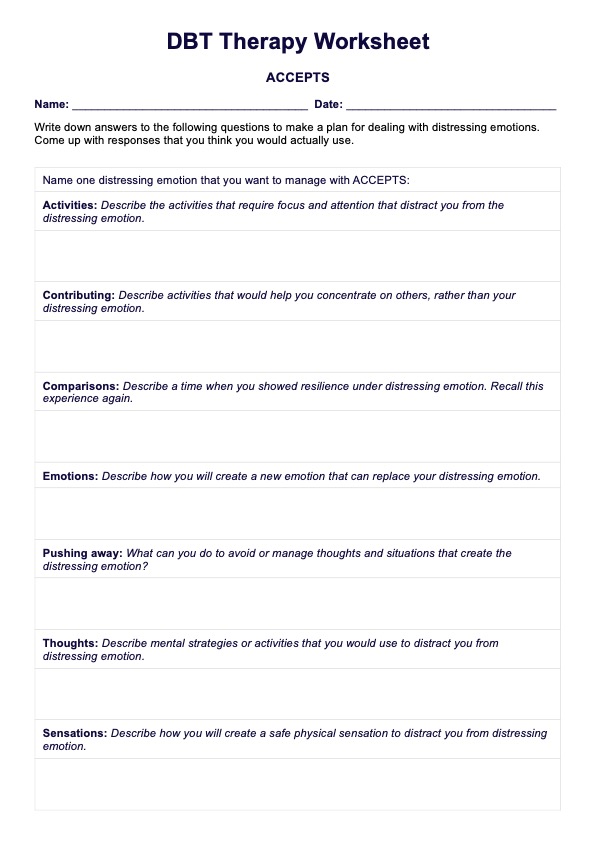
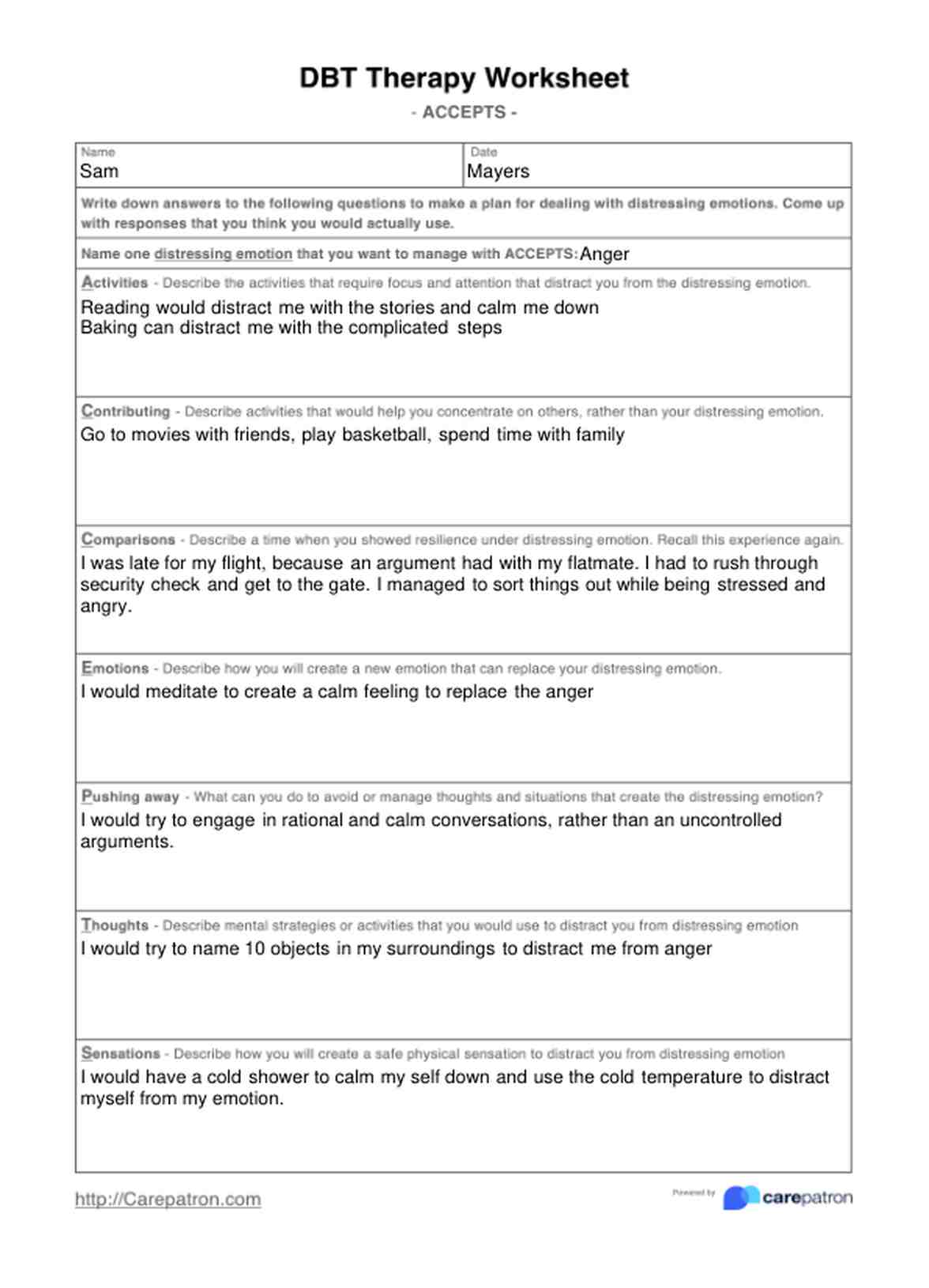















-template.jpg)






